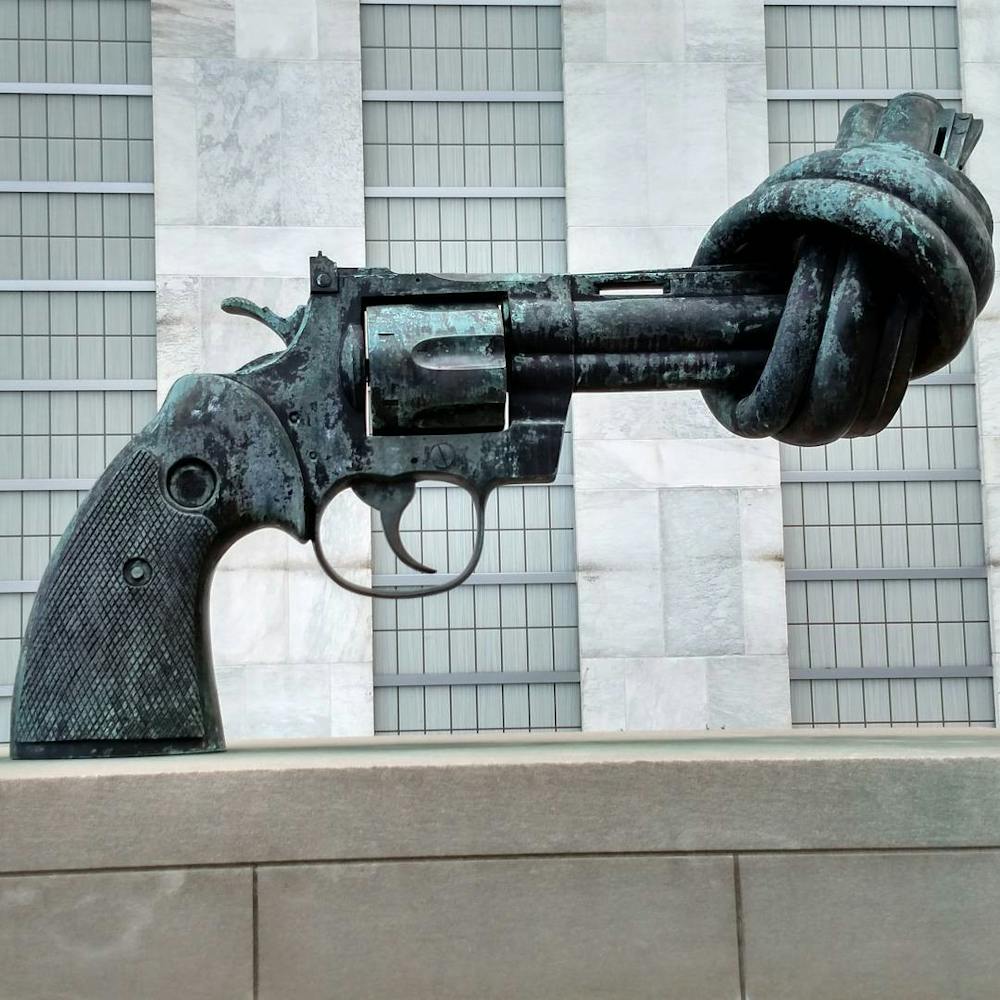The U.S Supreme Court recently decided to hear and review its first case on an individual’s right to bear arms since 2010. The litigation challenges a New York state law that requires residents to prove “proper cause” in order to obtain a pistol or a concealed carry permit. The challengers, supported by the New York State Rifle and Pistol Association (NYSRPA), claim this provision obstructs ordinary, lawful citizens from getting licensed.
Unfortunately, considering the bench has a 6-3 conservative majority, the forecast decision is not one for the gun control agenda. If the Court rules in favor of the challengers, and individuals’ rights to bear arms are expanded, similar laws for permit issuance may be subject to review as well.
The Court’s decision will ultimately set the tone for how America attempts to solve the issue of gun violence, possibly sowing the seeds of our own destruction.
But perhaps this review is necessary given the recent shift in how constituents feel. Only 50% think reducing gun violence should be prioritized when enacting legislation, while 43% believe the right to own firearms should be the priority, a narrower margin compared to the respective 57% and 34% reported in 2018. This discrepancy of opinions, however, comes at a time when rates of gun violence have been unacceptably high.
Curbing this violence must be prioritized. Considering the robustness of the U.S. arms and ammunition industry, U.S. residents own 40% of the world’s civilian-owned guns. Compared to 64 other high-income nations, the U.S. takes first place in rates of gun homicide. As of writing this article, the U.S. has seen 168 mass shootings in 2021 alone, and the Centers for Disease Control and Prevention has diagnosed gun violence in the U.S. as an epidemic.
Although the facts are glaring, we have failed to recognize them and adequately respond. America has an obsession with guns that thoughts and prayers cannot fix.
In 2013, a few months following the tragic Sandy Hook Elementary School shooting, Democratic Senator Joe Manchin III (West Virginia) and Republican Senator Pat Toomey (Pennsylvania) proposed the Manchin-Toomey Amendment to impose gun regulation. The plan included popular common-sense measures including the expansion of background checks and the establishment of a committee to research mass violence and its causes.
Regardless, the compromise was defeated. 46 senators, four of whom were Democrats, opposed the bill, and 54 approved, four of whom were Republicans. The bill still fell short of the 60 votes needed to push it through.
Of the four disapproving Democrats, three came from rural states supportive of gun rights where their reelections were looking difficult. If a popular, bipartisan bill following a deadly school shooting couldn’t be passed back in 2013, it’s difficult to imagine any more progress towards regulation being possible in the present polarized America.
While many recognize the need to control firearms, for others, guns have become integral to their American identity. Gun culture and the push toward tradition have led to an increase in activity, year by year, of right-wing militia groups. Political battleground states are especially at high risk for their violence. These levels of militarization among civilians have established the belief, among some, that arming the common man should be the standard.
In an interview on "Fox News Sunday," Republican Senator Lindsey Graham (South Carolina), a proud AR-15 owner, justified his weapon saying, “If there's a natural disaster in South Carolina where the cops can't protect my neighborhood, my house will be the last one that the gang will come to because I can defend myself."
This is a manifestation of gun culture. The romanticized American patriot is exceptional and must valiantly fight for liberty and freedom from an oppressive government, with their trusty rifle in one hand and a copy of the constitution in the other.
If his assailants were also armed, how might Graham react? What if they were just as exceptional?
Some may propose arming ourselves with even heavier artillery as a solution. Others may elect to seize weapons from everyone. But the reality is, we are all scared. We face a cycle that’s inherently self-destructive, waiting in fear to see who brandishes the bigger weapon. The big fish will devour those who are smaller, but we shouldn’t make this any easier than it already is.
Anju Felix is a sophomore from Port Murray, N.J. studying Neuroscience, Political Science and Harp Performance. She is the Opinions Editor for The News-Letter.

















